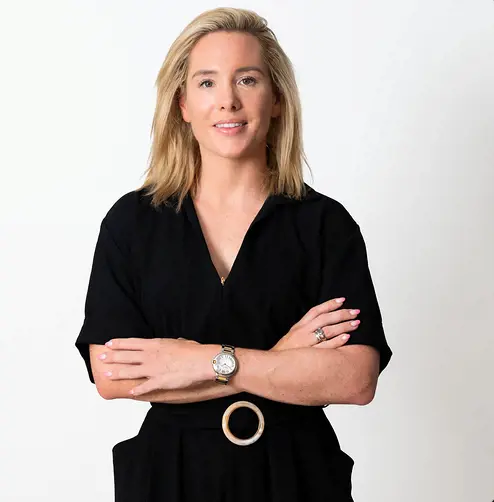

In her latest column for iGBA, Cordelia Morgan-Cooper proffers some valuable advice to both employers and candidates on securing the best possible outcome in a volatile hiring environment for igaming.
As discussed in my last article on who holds the power in the igaming jobs market, the dynamics of hiring in the fast-paced and ever-evolving world of the gaming industry have undergone significant transformations over the past decade. Factors such as technological advancements, changing economic conditions and the rise of remote work have made the hiring environment more volatile but also more interesting!
In this article I will attempt to unpack what employers and candidates can do to work together to achieve optimal outcomes in this fluid milieu, creating a win-win situation for both parties, as there are clearly two sides to this story.
How should employers be positioning themselves?
As a potential employer, when looking for new hires, it would be wise to consider the following.
First, employers must be adaptable and flexible in their hiring practices in order to navigate the ever-changing landscape. We have seen recently that rigid job descriptions and requirements have given way to a focus on the core skills and competencies needed for a role. This adaptability allows employers to tap into a broader talent pool.
Beyond this, a key part of the hiring process is ascertaining the level of expertise and seniority that is required. It's crucial that employers address this at the start of the recruitment process. By not focusing on this part of the hiring process, it can lead to a messy candidate experience and can mean that employers lose out on great talent.
It is obvious that the gaming industry is at the technological cutting edge – this means we should be leveraging that technology to streamline hiring processes. It is ironic perhaps that the gaming industry as a whole is relatively backward when it comes to forward-thinking HR processes. Applicant tracking systems, video interviews and data-driven assessments (both psychometric and personality type tests) can help identify the very best candidates quickly and efficiently. Furthermore, during the pandemic, we saw a large increase in virtual meet ups – whether it was virtual pub quizzes, team competitions or Christmas parties – technology was used to help promote and retain company culture and we have seen this continue (it is also a great cost-effective way to get teams together).
“Applicant tracking systems, video interviews and data-driven assessments (both psychometric and personality type tests) can help identify the very best candidates quickly”
Almost all businesses within the gaming industry are using some kind of communication tool – whether it’s Slack or Teams – helping to promote a positive internal narrative thread and promote transparent communication. At TAG Media and Exient, we have used Matter (which has a Slack integration tool) to implement Kudos. This is a really innovative tool which enables us to ‘shout out’ different team members for the great work they have done, not only helping boost morale but also increasing communication.
Diversity and inclusion (D&I) is becoming an increasingly important topic both internally and externally. My team has seen a considerable rise in the number of requests by candidates about D&I policies within the companies they are applying to work for. It is obvious that a diverse workforce can bring fresh perspectives and innovative solutions and we definitely see this within the gaming industry.
Employers should actively promote diversity and inclusion in their hiring processes – this can go further to also rewriting and drafting job descriptions and company pages in order to trumpet diversity and inclusion policies. We have seen the likes of Cindy Macintosh (chief people officer at Pinnacle) speak very openly about diversity and inclusion and its importance in the workplace and there has been a steady increase in panel discussions on these topics.
Something else we have seen in recent years is the advent of the “candidate experience”. Within the gaming industry as a whole, we have seen a huge increase in the amount of importance placed on ‘the journey”. During my three years at Catena Media, we focused heavily on not only updating candidates throughout the recruitment process but also, crucially, in providing feedback (both positive and constructive) as soon as we could at each stage. In an increasingly competitive market, you really want every touchpoint you have with candidates to be seen as favourably as possible.
How can employees put themselves in pole position?
On the other side of the coin, candidates have a duty to promote themselves well too. For instance, in the current volatile job market, candidates must invest in skill development and continuous learning. Acquiring new skills and staying updated with industry trends, technologies and regulation updates makes candidates more adaptable and competitive.
There is clearly a fine line but a candidate must know their value in the marketplace. While they must be prepared and able to talk about themselves and their experiences in an interview process they also have an obligation to make sure that they haven’t massively inflated their skill set. At CMC Consulting, we have had a couple of instances where a candidate in the final stage of discussions with a potential employer has suddenly begun demanding a hefty increase, an increase in vacation days, or a change to the working setup. Unfortunately the business then decided not to move forward.
Recently John Wright’s Affiliate BI podcast with Refine Labs’ Chris Walker highlighted the importance of personal branding. This is something a candidate needs to continuously work on. Building a strong personal brand through LinkedIn or via other online platforms (was Threads really a thing?!) is becoming more important these days. Things are changing rapidly in the market!
A candidate shouldn’t forget the old ways either – building and maintaining a professional network is crucial. However, does it make sense to attend every one of the gaming conferences? With ICE, SBC, SiGMA (six conferences for 2024), iGaming Next (Malta and the US) it could be viewed as overkill. Crucially the candidate should attend those that make most sense individually, where growing a network (both professionally and personally) can be maximised. This can also really help when applying for roles – if a candidate has developed a strong personal brand then they are likely to have met some of the key decision makers while at a conference or a networking event.
The ability to adapt to change and bounce back from setbacks, changes at work (structural changes, market changes) is highly valuable. In the industry currently we are seeing a huge influx of qualified candidates within support functions (HR and finance) due to businesses streamlining teams. I spoke in my last article about the emergence of AI and its significance in businesses when it comes to workforce planning and internal teams.
The common ground
While employers and employees necessarily need to focus on putting themselves in the strongest possible position to meet their objectives through the hiring process, there are things that both parties need to commit to do in order to achieve a mutually beneficial outcome.
It’s important that a candidate should consider the values and culture of potential employers. It's not just about finding a job but finding the right fit. Culture was a buzzword back in 2016 when most gaming businesses in Malta were trying to define an identity. The amorphous nature of this “culture” was also used as a recruitment tool with companies promising beautiful office views, great benefits, lunches and an inclusive and non-hierarchical management structure.
Most importantly, both employers and candidates should determine themselves to engage in open and transparent communication. Candidates should express their career goals, while employers should outline their expectations and provide feedback.
If a candidate has developed a strong personal brand then they are likely to have met some of the key decision makers while at a conference or a networking event
Employers should create detailed and accurate job descriptions with career pathways clearly mapped out. Candidates benefit from understanding their prospective role thoroughly, including responsibilities, required skills and growth opportunities.
Employees also continue to push on securing flexible work arrangements and strong benefits packages. The remote working hot potato continues to be a topic of discussion and employers are constantly changing their views on this. What we have seen recently from a lot of gaming companies is a more adapted/personalised benefits model. Private health insurance, for example, is the norm in Malta (sometimes after probation but often from the day an employee starts). Meanwhile increased flexibility is becoming common, even from the businesses that are not in favour of remote working. I can remember the days when employees would need to book holiday to take a doctor’s appointment but fortunately this is almost totally a thing of the past.
All of the gaming businesses that we partner with at CMC Consulting to provide HR consultancy services undertake to provide their employees with two annual performance reviews. These not only help the employee to see how they are performing but also provide a forum for them to receive open, up-front and honest feedback about their manager in a constructive setting.
Some companies have also taken this a step further to include full 360-degree feedback from peers across the company. The outcome of this feedback has then in some cases been linked to a bonus of some sort (at individual, team or company level). While the ways to create a universal bonus scheme are possibly limitless, the challenge is how to get the scheme right for everyone – unfortunately it just isn’t a one-size-fits-all model. If we look for inspiration outside of the gaming industry the likes of Google introduced bonuses in the form of holidays or experiences, not as a cash sum.
The key to success in the current volatile hiring environment the gaming industry is experiencing is a shared commitment to adapt and grow. Both employers and candidates must recognise that the traditional rules no longer fully apply and both must seek clarity in their expectations.
Image by PayPal.me/FelixMittermeier from Pixabay

Cordelia Morgan-Cooper
has over a decade of international HR and recruitment experience. She has developed a passion for driving happiness, wellbeing and success in the workplace, having seen first-hand the impact of an engaged workforce when it comes to both recruitment and employee retention.